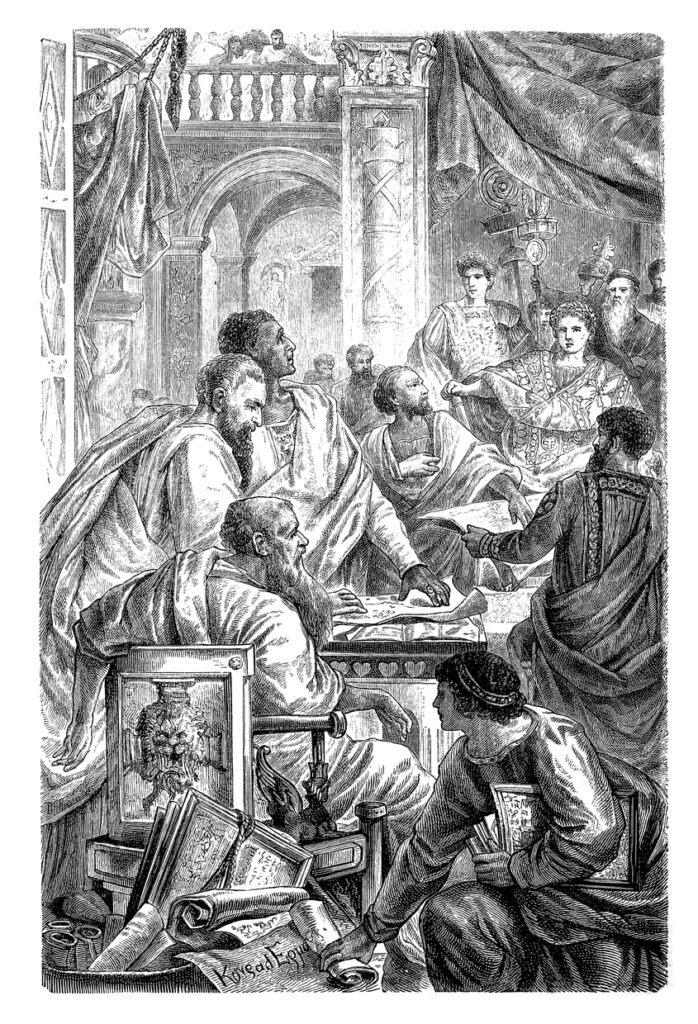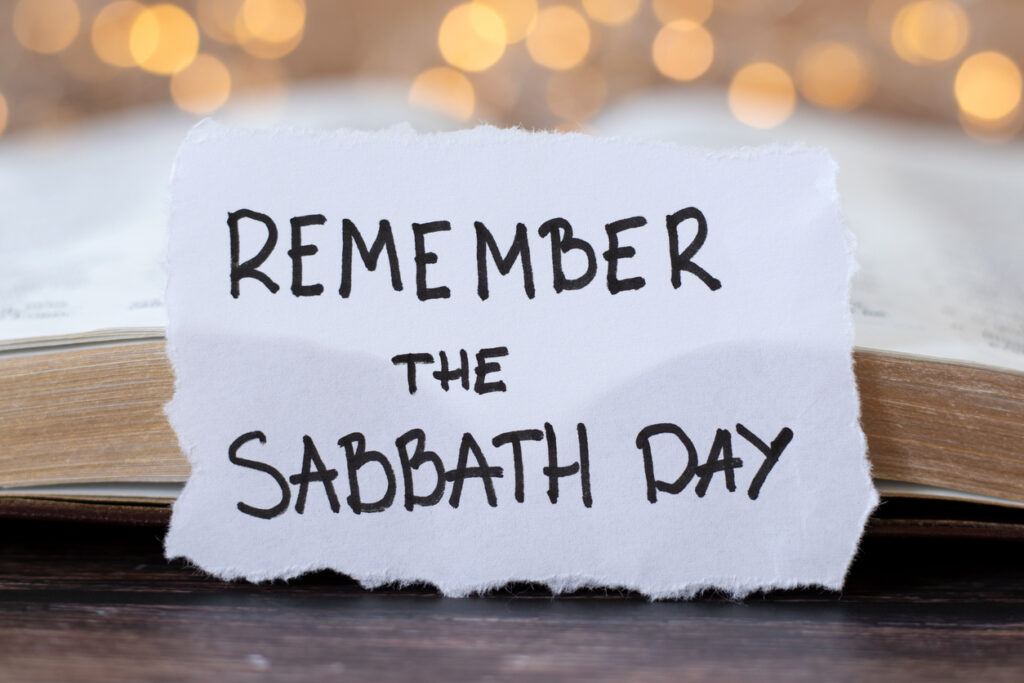The Day God Made for Us: Rediscovering the Sabbath
Before sin, before Sinai, before Israel itself – there was a day set apart by the Creator. A day not born of human tradition, but woven into time at the dawn of creation. A gift – blessed, sanctified, and still speaking to those willing to hear.
The Sabbath at Creation

“In the beginning” does not only describe the heavens and earth – it also frames the rhythm of time itself.
“And on the seventh day God ended His work which He had done, and He rested… Then God blessed the seventh day and sanctified it” (Genesis 2:2–3, NKJV).
The placement of the Sabbath in the creation account tells us everything: it is just as real, just as deliberate, and just as enduring as the sun, moon, and stars. It was not made for one nation or one era – it was made for all mankind.
Jesus affirmed this truth plainly:
“The Sabbath was made for man, and not man for the Sabbath” (Mark 2:27, NKJV).
Not a burdensome law. Not a cultural artifact. A divine gift – woven into creation to bless, not burden.
A Covenant Sign
While the Sabbath was made for mankind, Scripture reveals another dimension: it becomes a sign for those who walk in covenant with God.
“Surely My Sabbaths you shall keep, for it is a sign between Me and you throughout your generations, that you may know that I am the Lord who sanctifies you” (Exodus 31:13, NKJV).
Ezekiel confirms the same:
“I also gave them My Sabbaths, to be a sign between them and Me, that they might know that I am the Lord who sanctifies them” (Ezekiel 20:12, NKJV).
This is no contradiction. The Sabbath was given to all, yet it becomes a visible marker for those who choose to receive it – a relationship signifier, not merely a legal requirement.
A Pattern of Forgetting
From the start, God’s people struggled to honor the Sabbath. Prophets rebuked neglect (Isaiah 58:13; Nehemiah 13:17–18), and by the time of Christ, religious leaders had weighed the day down with rigid human regulations. Jesus confronted this distortion – healing, teaching, and restoring the Sabbath’s true purpose. He declared Himself “Lord of the Sabbath” (Matthew 12:8), reclaiming it as a day of life-giving rest.
Yet, after the apostolic era, a shift began – one not commanded by Scripture but shaped by culture, politics, and pressure.
How Sunday Took Its Place

Roman Sun Worship – Long before Christianity, Romans venerated the dies solis – the day of the Sun. Emperor Aurelian (A.D. 270–275) elevated the cult of Sol Invictus (the Unconquered Sun) to an official state religion. Sunday was already associated with divine light and cosmic order.
Mithraism – The rival mystery religion of Mithras also centered on Sunday, celebrating themes of rebirth and victory over darkness – parallels that made accommodation appealing in a pagan world.
Anti-Jewish Sentiment – Early Church fathers, such as Ignatius of Antioch and Justin Martyr, distanced Christian practice from what they saw as “Jewish customs,” gradually elevating Sunday worship in its place.
Constantine’s Decree – In A.D. 321, Emperor Constantine issued a civil law:
“On the venerable day of the Sun let the magistrates and people residing in cities rest, and let all workshops be closed.”
This was not a biblical command – but a political measure, blending imperial custom with religious practice. Over centuries, Sunday became the cultural norm – while the biblical Sabbath faded from view.
A Modern Misunderstanding
Many sincere believers today explain Sunday observance with a statement that sounds deeply spiritual: “Jesus is my Sabbath.” While Christ indeed offers spiritual rest (Matthew 11:28–30), this truth does not nullify the seventh-day Sabbath – rather, it deepens its meaning.
Hebrews 4 confirms:
“There remains therefore a rest for the people of God” (Hebrews 4:9, NKJV).
The Greek word sabbatismos means “Sabbath-keeping.” Far from abolishing it, the New Testament affirms its continuation – pointing to a spiritual reality that enhances, not replaces, the weekly rhythm God established.

A Test of Faith
The Sabbath often becomes the first test of obedience for those who begin to walk in covenant. Not merely a matter of belief – but of life rearranged. Will I trust God enough to step away from work, commerce, and custom? Will I rest when the world says strive?
In Exodus 16 – before Sinai – God used the Sabbath as a test (Exodus 16:4–5, 22–30). The test remains – not of legalism, but of faith. Observing the Sabbath is a living declaration: “God rules my time. God sustains my life.”
The Day Still Stands
The seventh day was blessed at creation – and that blessing has never been revoked (Genesis 2:2–3). It is not a relic of the Old Covenant, but a sign of God’s eternal purpose – a weekly foretaste of His Kingdom (Revelation 14:12).
The Sabbath is not legalism – it is love.
Not bondage – but blessing.
Not outdated law – but timeless design.
It anchors us in who God is, who we are, and where history is headed. Each week, it calls us to rest, remember, and return – until temporary rest gives way to everlasting peace.
Source Notes
- Constantine’s Sunday law: Codex Justinianus III.12.3 (A.D. 321).
- Cult of Sol Invictus: Aurelian’s decree (Historia Augusta, Aurelianus 25.6–7).
Justin Martyr, First Apology (c. A.D. 155), discusses Sunday gatherings while distancing from Sabbath.


